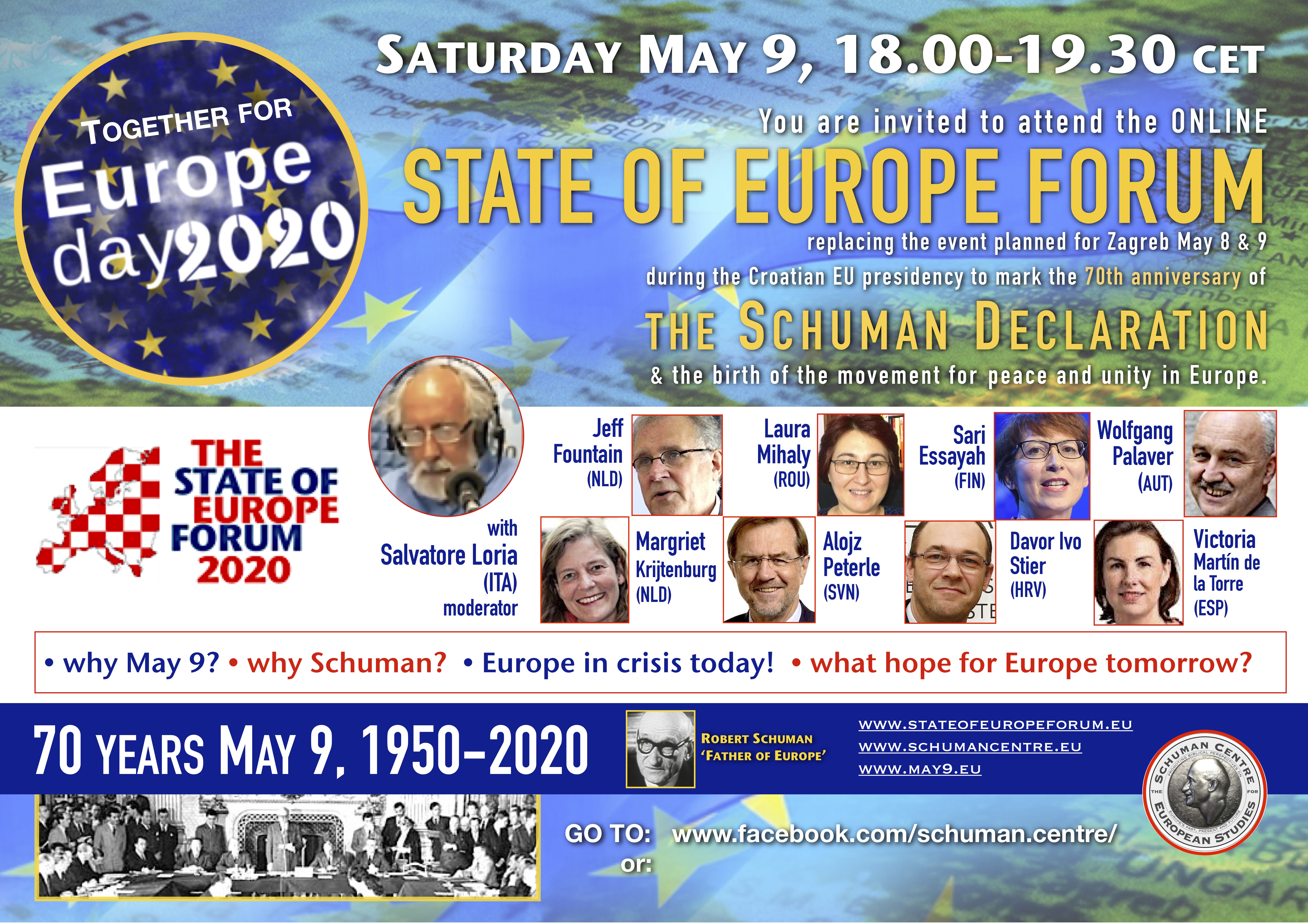The 2019 State of Europe Forum will be held in Bucharest, Romania.
Among the confirmed speakers and contributors are:
• Prof Wolfgang Palaver, Catholic Institute in Innsbruck (Dean of the school of catholic theology and professor of
• Dr Dragos Pislaru (former minister of labour, candidate for European Parliament )
• Prof Silviu Rogobete, West University of Timisoara, former Consul General of Romania in South Africa
• Dr Nicoleta Salcudean, (lecturer at Babeș-Bolyai University, Cluj- Napoca, in the Department of Cinema and Media Studies)
• Florica Chereceș, PNL Parliamentary Group and Secretary of the Commission for Education, Science, Youth and Sports.
• Prof Evert Van de Poll, Evangelical Theological Faculty, Leuven,
• Sever Voinescu, TV host Europa Christiana, former Assistant Professor for the Academy of Economic Studies
Locations: yet to be confirmed. Possibilities being pursued include: the Aula Magna of the University of Economic Studies, the University of Bucharest Aula, and the Parliamentary Palace, (although initial inquiries indicate that the Parliamentary palace is closed to Schuman events until after the presidency).
Our proposed theme is Europe: a community of values?
The Romanian presidential priorities provide a starting point for themes and topics:
• Convergence of spirit • Security though solidarity • Service of justice and peace • Values of virtue
We wish to facilitate a dialogue about the values or principles on which we can build our future. Values lead to the other priorities: the value of peace to security; the values of solidarity and equality to convergence and service. Questions about values need to be raised: do east and west share the same values? where do our values come from? Do our national policies really reflect European values? do ‘European’ values apply also to migrants?
The programme topics and schedule will be finalised once the contributors have been confirmed, yet we would like to address the following issues:
1. Deeper foundations:
While Brexit has led to much talk of disintegration, calls for more members to leave have gone quiet following the British implosion; nations in the Balkans and the East European partnership are still lining up to join. But what will further integration require? How can there be more convergence? Are the foundations deep enough to cope with more growth? What are these foundations? What was Schuman’s concern about building on true foundations? Where are the spiritual foundations he and Delors called for? Can secularism provide foundations for sustainability? Romano Guardini said (1946): “Europe will be Christian or it will not be”. Are the European values truly rooted in virtue, in a biblical understanding of human dignity and responsibility?
2. East-west (mis)understandings:
• Do east and west share the same values? • Transparency, democracy and faith
The speed at which the EU enlarged to include many post-communist countries outstripped the west’s growth of understanding of their new fellow members. Western ignorance of the legacy of Byzantium, Ottoman occupation and communism and assumptions of cultural superiority of secular liberalism lead to much misunderstanding concerning the politics of sexuality and migration issues. While France and Germany experienced an essential phase of forgiveness and reconciliation, under communism the east did not. Was the swamp of corruption ever properly drained? What are our commonalities and differences? Can we find a convergence of spirit? Maps showing conditions of transparency, democracy and prosperity tend to rank Protestant countries above Catholic and Orthodox lands. Does correlation suggest causality? What are the relevant factors?
3. Security through solidarity: with an unpredictable president in the White House, Europeans are considering alternatives for their own security. Terrorism, hybrid warfare, open hostilities and violation of territorial integrity in eastern Ukraine, NATO member Turkey’s flirtation with Russia and lack of common foreign policy within the EU are urgent challenges to be faced. Can loving your (aggressive) neighbour mean coupling the soft powers of truth, love and justice with hard powers of sanctions and military deterrence?
4. Civil society, stand up! Europe’s future is too important to leave to politicians only. Restoring the soul of Europe is not their competence. That must be a task for the faith communities. Romania’s People’s Revolution of 1989 began with the faith community. What is the role of civil society in building Europe’s future? How can the People’s Revolution continue? How can Europe’s calling to serve the world by promoting justice and peace be best fulfilled through governmental and non-governmental agencies cooperation to assist migrants and refugees, combat trafficking, care for creation, promote education and healthcare, and protect the vulnerable?
Proposed seminar topics:
I. The relevance of Schuman today – can his ‘old-fashioned’ vision still point the way forward?
II. Migration and refugees – do European values apply to migrants too?
III. Memory and ‘Organised forgetting’ – do we have a future without memory of the past?
IV. The Eastern partnership and the future of Europe – can an ancient festering spiritual wound be healed?
V. Populism, ‘rerum novarum‘ and the common good: Europe’s choice: polarisation or solidarity
VI. Gender equality in Europe: ‘In Christ there is no male or female’ – wrote Paul. How true is this for the churches? How true is this for Europe?
